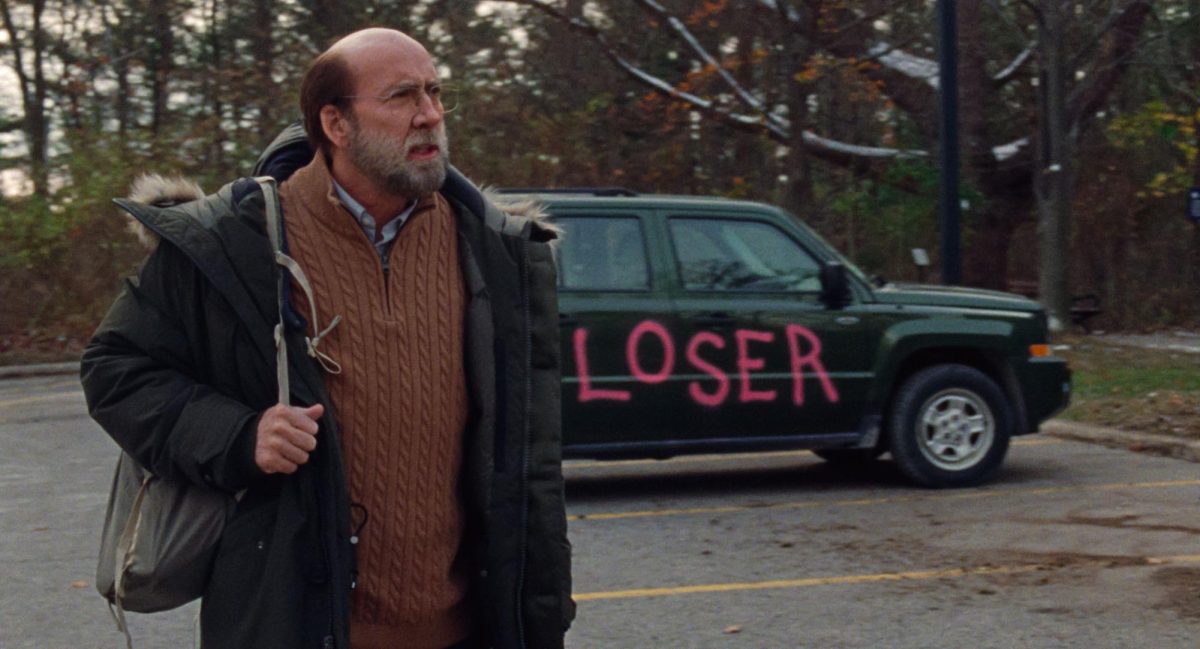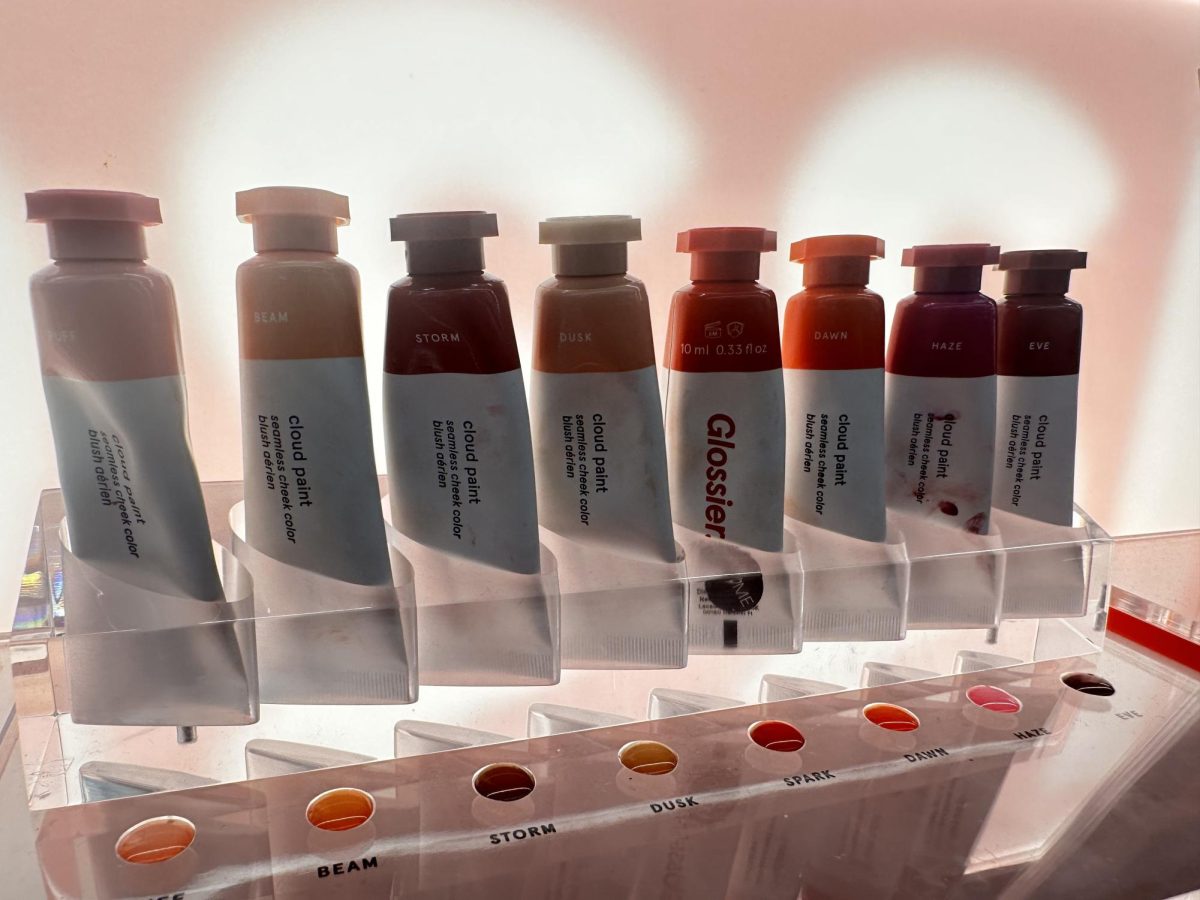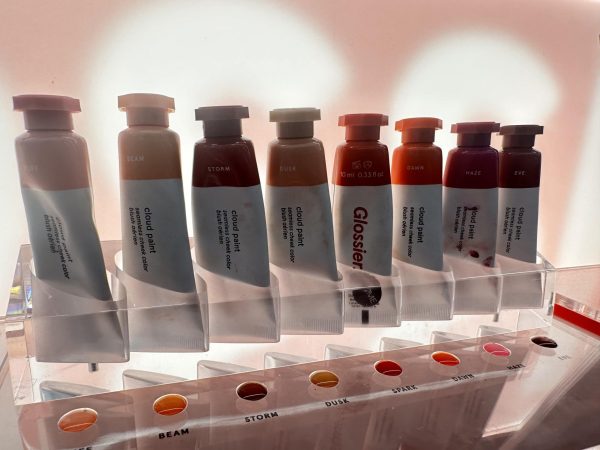Multiverse becomes excitingly mundane
Daniels newest film is 2022’s best yet
April 8, 2022

Nobody is making films like Daniels.
This directing duo, composed of directors Daniel Scheinert and Daniel Kwan, established themselves as a voice to be reckoned with inside of absurdist cinema with their 2016 film “Swiss Army Man,” which stars Daniel Radcliffe as a surprisingly flatulent corpse who guides a lost Paul Dano back to civilization. This combination of highbrow themes and lowbrow humor is just one tool that the Daniels duo use in their odd and unique approach to filmmaking.
Their short films, especially 2014’s “Interesting Ball,” which employs some particularly disturbing visual metaphors regarding the interconnected nature of humanity. This film showed that the duo were interested in more than just making audiences laugh.
Nothing, however, could have prepared fans for the unhinged beauty of their 2022 masterpiece “Everything Everywhere All At Once,” which opens nationwide on April 8.
A strong contender for one of the best films of the year, “Everything Everywhere” is a madman’s kitchen sink narrative, where every possible idea is thrown at the screen and nearly every one lands extremely well due to the strong emotional core and stellar performances at the center of the chaos.
The film is best experienced knowing very little, but a brief perusal of the trailer would clue audiences in to the fact that this is a multiverse story where Evelyn, played by Michelle Yeoh, is told that the fate of every universe is in her hands.
All of this comes at Evelyn while having to deal with the upcoming audit of her laundromat, being conducted by a nearly unrecognizable Jamie Lee Curtis. Evelyn also has to come to terms with her fractured relationship with her husband, played by Ke Huy Quan of “Temple of Doom” and “Goonies” fame, and her equally strained relationships with her daughter (Stephanie Hsu) and her father (James Hong).
This synopsis barely even scratches the surface of the insanity that occurs within the next two hours of the film. It is hard to classify “Everything Everywhere” in a specific genre, as one of the many joys of the film is seeing how magnificently the script jumps from being a kung-fu movie to a comedy to a Wong Kar-Wai inspired romantic drama. The duo even goes the extra mile when homaging Kar-Wai, using his signature step-printing technique in some nighttime scenes.
These tonal shifts would not work if not for the excellent performances by Ke Huy Quan and Michelle Yeoh. The duo portray multiple versions of themselves and are required to switch between versions rapidly, sometimes in a single shot, but the audience never loses track of what is going on because of how amazingly physical these performances are.
Quan specifically jumps from a meek and hopelessly romantic laundromat owner named Waymond to a Morpheus-style guide to the multiverse, referred to as Alpha Waymond, with great ease. Quan’s role as Waymond is his first role in a theatrically released film since 1991, and he feels right and home, bringing an infectious energy to the film.
“Everything Everywhere” is a visual feast as well, with the kinetic editing style of Paul Rogers adding to the fast-paced tone of the film. Every shot within the film is playing with some idea of lighting, camera movement, blocking or focus, and each one adds something profound to the plot.
The script, which Daniels also wrote, is extremely stylistic and hilarious as well. The storyline starts off with a title card that insinuates that the story will be broken into chapters, but the second “chapter” doesn’t occur until well into the last third of the film. “Everything Everywhere” also runs the gamut with other absurd gimmicks, including a fake credit roll, constantly changing aspect ratios and a seamless blending of countless storylines.
The film features everything from characters with hot dogs for hands, a cult that worships a bagel, Nine Days’ “Absolutely (The Story of a Girl)” and references to everything from “2001: A Space Odyssey” to “Ratatouille.” The film moves so fast that some jokes are bound to be missed by audiences, but this just adds to the film’s rewatchability.
Rather than using the humor as comedic relief like many Marvel films have, Daniels decide instead to use the humor to disarm the audience before hitting them deeply with the film’s more humanistic moments. A scene where two rocks nonverbally communicate starts off as a hilarious gag, but turns into one of the most tear-jerking scenes within the picture.
Daniels have described this comedic strategy as the “first fart makes you laugh, last fart makes you cry” style, in reference to the aforementioned “Swiss Army Man,” and “Everything Everywhere” pulls this off better than anything Daniels have done before.
The main flaw with the film for some will be the pacing. “Everything Everywhere” never slows down for the audience to catch up, and the film can be too sensory overload for some to handle. The humor can also be hit and miss for some, as a certain scene involving some unusually shaped trophies elicited audible groans from audience members.
What makes this film work, however, is that none of this absurdity could be removed without excavating the heart of the film – the “stupidness” that some have called the weakness of the film is really the film’s raison d’être. The film goes so far into the realm of absurdity that it becomes a love letter to the mundane.
“Everything Everywhere” is the most fun film that indie powerhouse A24, the studio responsible for releasing future Oscar winners such as “Moonlight” and “Minari,” has released in a long time. With emotion and humor in spades, and great performances from Yeoh and Quan, the film deserves to be seen in theaters.


































































































